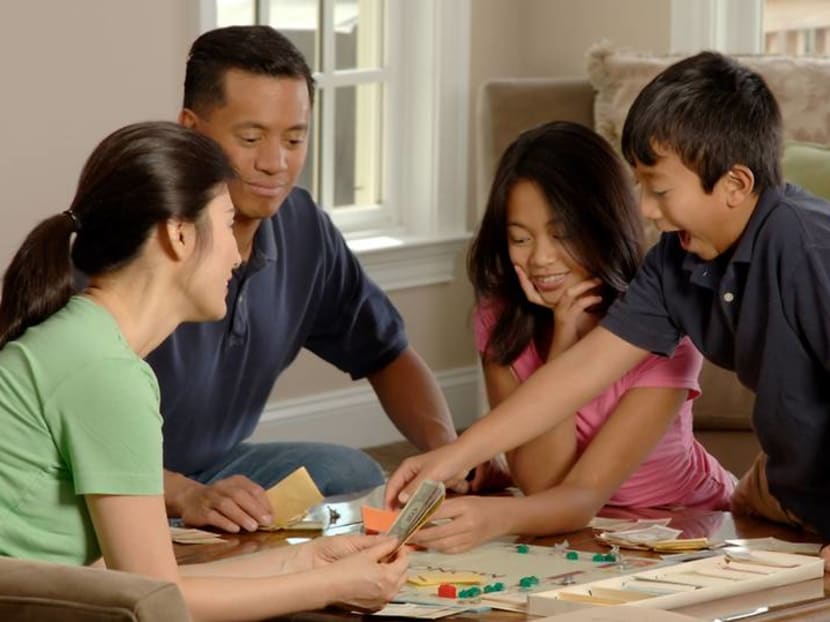No ‘me-time’, tired, stressed: How parents can cope with everyone being at home
Spending more time with the family is a good thing – but being cooped up for your children for weeks does have its downsides. Here’s how to manage the situation.

(Photo: Unsplash)
For many mothers and fathers, the circuit breaker can almost feel like an eternity of flexing their parenting skills to the max. When the school holidays were brought forward, it meant a seamless transition from kids studying at home to kids on holiday – while at home.
For some, the holidays can be a breather. No more home-based learning (HBL) questions or an unending stream of tuition homework. But that also means more free time for the children, which parents have to manage, which will still be at the expense of their own personal free time. Which basically means if you’re a parent, there’s literally no rest for the weary.
There’s also an added factor: With everyone’s personal space shrinking to the size of flats, internal pressures building up might occasionally reach a tipping point and lead to explosive conflict.
READ: Home-based school holidays: Parents, here are some activities for the kids to enjoy
So how does one diffuse such a situation? CNA Lifestyle spoke to several parents about what self-quarantine is like at home, when it comes to dealing with their children, and talked to an expert on how they could deal with it.
FAMILY MATTERS
But first things first: There’s no doubt that parents are grateful to be spending more time with their kids – whether it was during the HBL or the current holidays.
Amelia Chew, a mother of three, welcomed the fact they’re all spending time together and added that her children have been more relaxed since circuit breaker measures kicked in. And with no one going out, she quipped that there was the added bonus of having to do less laundry.
That said, Chew admitted there were some disruptions to her own schedule.
“My youngest daughter is dependent on me so if she has homework, so do I!” she said, adding that she preferred having the current holidays, which are meant for the kids to rest.
There is a lack of personal space. It’s difficult to have time for my own routine.
Meanwhile, Rachel Phua Hui Hua, 40, said that helping with homework and doing house chores back-to-back had meant little chance of proper rest (and “me”) time.
“There is a lack of personal space. It’s difficult to have time for my own routine such as prayers in the mornings because of home-based learning,” said the mother-of-two.
Even leisure activities we’ve all taken for granted – such as watching TV – has led to some friction. Now, she said, everyone had to make sure that they take turns to watch their own respective shows.
It’s more or less the same with Emily Tan. The 40-year-old mother of two young kids shared that there have been more frequent scoldings at home – and she would sometimes feel guilty about being unable to attend to her children’s needs because of her own work. Having both kids at home has also meant more quarrels between them.
“I think it boils down to one challenge, which is having to work alongside young children who are not independent yet in their learning and basic needs,” she said. “To be honest, I cannot wait to physically send them back to school!”
That said, the school holidays were brought forward, Tan and her husband agreed they actually preferred having home-based learning as opposed to having the kids at home with nothing much to do during the holidays.
We have already been accustomed to the new normal, so the sudden school holidays have broken the routine.
For one thing, having home-based learning meant that she had the chance to catch up with the teaching syllabus for her daughter, and help her to provide better support when it came to school work.
“We have already been accustomed to the new normal, so the sudden school holidays have broken the routine,” she said.
“We scrambled again to think about how to occupy our daughter’s time for this one month. Home-based learning, though cumbersome with the different modes of learning and taking instructions from different teachers, helps us to follow through with a timetable and set some discipline.”
READ: Relationships in quarantine: How couples living together can remain happy
LOSING NORMALITY AND WHAT IT MEANS
CNA Lifestyle spoke to Vinti Mittal, the director of Singapore American Community Action Council (SACAC) Counselling, to find out how parents can cope with the kids during these unclear times.
She said that it was normal to feel fatigued or tired out during this pandemic period, adding: “The work-life balance just got tipped over by COVID-19 without any prior notice. We are used to exercising control in the different areas of our lives, often resulting in overindulgence with work, home, children, or other things.”
She continued: “Over-indulgence could cause loss of sleep, less self-care, (which) in turn lead to anxiety, depression, and frustration. The slipping into overindulgence could be seen as a coping behaviour to deal with the discomfort that the global pandemic has brought about.”
If you are feeling fine, so will the kids. They take the cues from us.
One of her suggestions to deal with these feelings was to spend some time alone reflecting on how you are personally dealing with the pandemic and quarantine. If the kids seem to be encroaching on the time you have to yourself, Mittal said that parents should ask for help with chores so that they do not end up feeling overwhelmed.
Most importantly, it is important that you yourself are feeling good.
“If you are feeling fine, so will the kids,” she explained. “They take the cues from us.”
It’s also normal to feel some sort of frustration and being irritable or losing your temper. But Mittal added: “Before we are engulfed by being self-critical and feel guilty, it's important to be aware that kids aren’t also on their best behavior either because of boredom, lack of physical activities, lack of structure, or inconsistent attention from parents and caregivers among many other changes.”
She continued: “Some kids aren’t able to comprehend why their world is all topsy-turvy. Younger kids aren’t able to comprehend, simple things like why aren’t they going to school, how are parents constantly at home or why aren’t they going out.”
Recognising that these are not normal circumstances, parents can work together to figure out how they want to interpret this period. Is it a time for obtaining good performance from kids? Or is it important to you that everyone can get through and manage the best they can?
Keep calm, meditate from time to time. This is a stressful time.
“Once we have our expectations and priorities set right, we will have more control over managing the situation positively,” said Mittal. “Experts recommend focusing on our and our children’s emotional state and strive to maintain positive family dynamics.”
And in dealing with inter-personal conflict at home, besides ensuring that all their needs are met, Mittal suggested that parents should not only fix priorities for the kids and themselves, but also to ask their kids for their support.
At this juncture, it is important to be as fair as possible when arguments arise, and to listen empathetically. Making rules to deal with frustration or anger – such as a time-out – can also be beneficial.
She said: “Keep calm, meditate from time to time. This is a stressful time. Be realistic in your expectation of yourself and others around you.”





